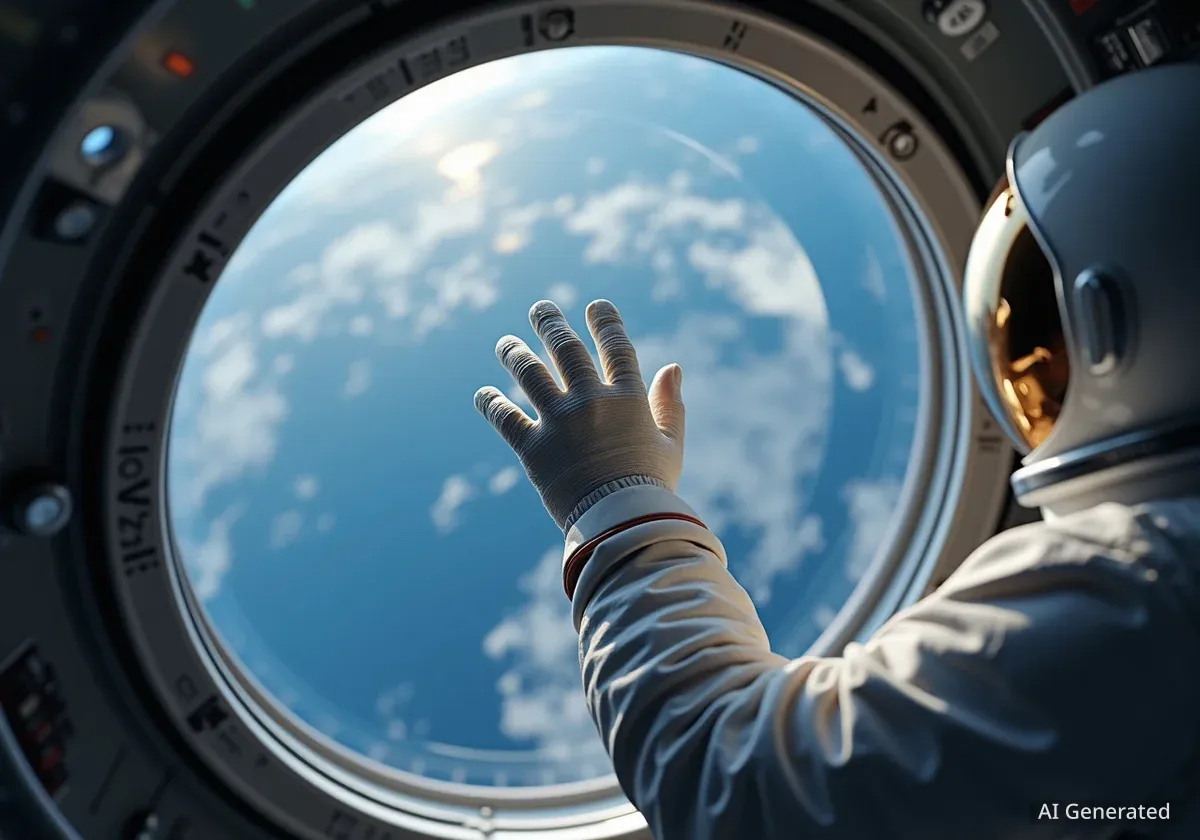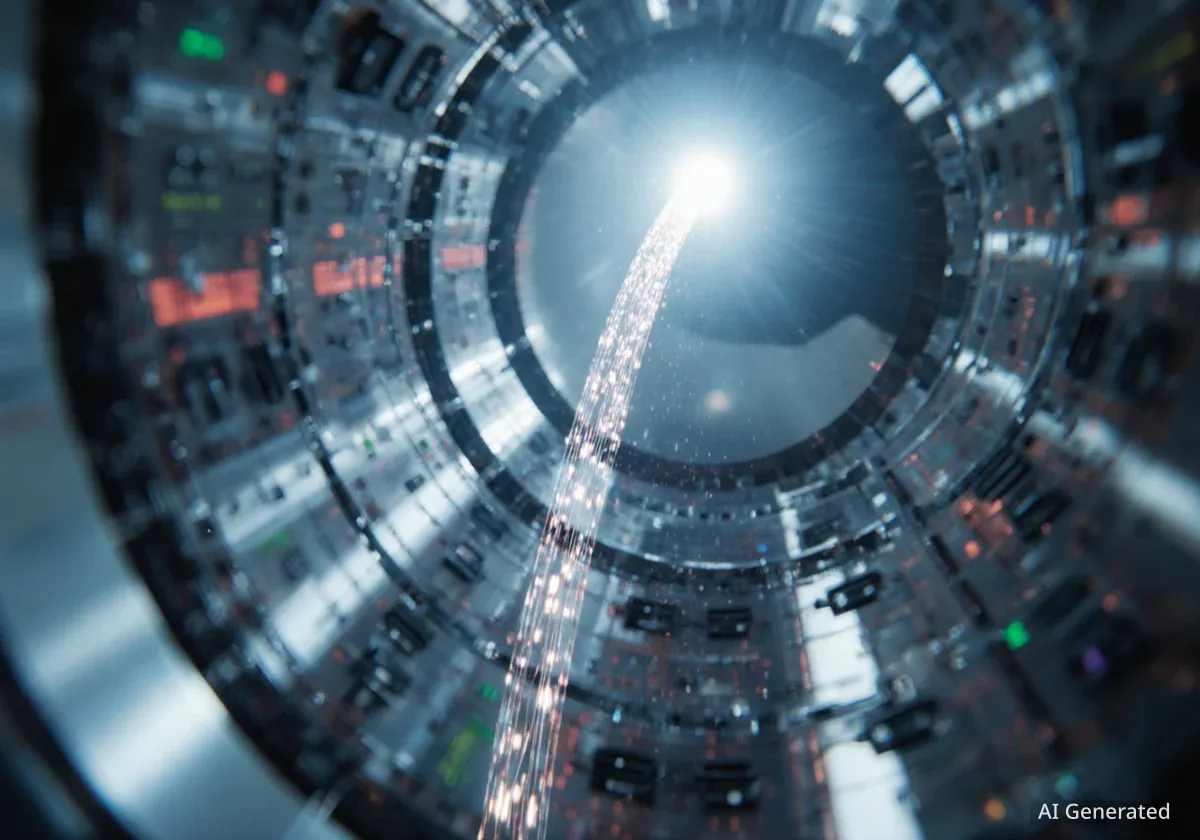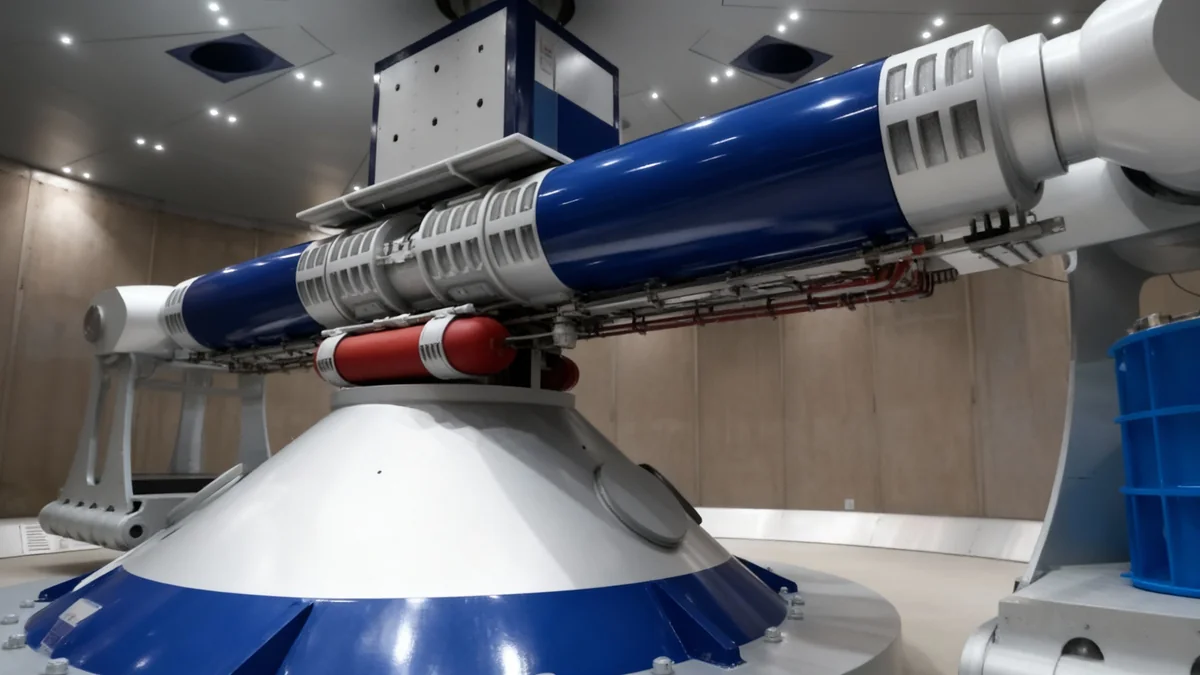Astronauts returning from space missions frequently report a significant cognitive shift in their perception of Earth and humanity's place in the universe. This phenomenon, known as the "overview effect," has been documented since the first human spaceflights and continues to impact those who view our planet from orbit, leading many to advocate for a change in global priorities.
Former NASA astronaut Ron Garan, who spent 178 days in orbit, is a prominent voice among those who experienced this profound change. After traveling 71 million miles, he concluded that humanity's focus on economic systems at the expense of planetary health is a fundamental error.
Key Takeaways
- Astronauts often experience the "overview effect," a cognitive shift in awareness after seeing Earth from space.
- Ron Garan, a former NASA astronaut, states humanity is "living a lie" by prioritizing the economy over the planet's life-support systems.
- The effect was first noted in 1961 with Yuri Gagarin, the first human in space, who called for Earth's preservation.
- The experience often leads astronauts to see Earth as a single, interconnected system without political borders.
- Actor William Shatner also reported overwhelming sadness and grief for the planet after his 2021 spaceflight.
The Overview Effect Explained
The term "overview effect" describes the profound experience astronauts have when they see Earth from a distance. Viewing the planet as a vibrant, fragile sphere suspended in the vastness of space often triggers a deep sense of connection to humanity and the environment.
From orbit, political borders, conflicts, and societal divisions disappear. Instead, astronauts see a unified, living system. This perspective can lead to a powerful understanding of Earth's fragility and the shared responsibility of all people to protect it.
Origins of the Concept
The idea was first articulated by author Frank White in his 1987 book, "The Overview Effect: Space Exploration and Human Evolution." He interviewed numerous astronauts and found a common theme: their time in space fundamentally altered their perspective on life, Earth, and the human species.
This is not a new phenomenon. The earliest accounts trace back to the very beginning of human space exploration. The experience has been consistently reported by space travelers from different countries and backgrounds for over 60 years.
Ron Garan's Call for a New Perspective
Ron Garan's experience aboard the International Space Station (ISS) provides a detailed account of this transformative effect. During his time in orbit, he completed 2,842 orbits of our planet, giving him ample time for reflection.
He described what he saw from the ISS window in an interview with Big Think. "I saw the paparazzi-like flashes of lightning storms, I saw dancing curtains of auroras that seemed so close it was as if we could reach out and touch them," Garan recalled. This awe-inspiring view was coupled with a stark realization.
"I saw the unbelievable thinness of our planet's atmosphere. In that moment, I was hit with the sobering realisation that that paper-thin layer keeps every living thing on our planet alive."
This observation led him to question humanity's fundamental priorities. He noted that from space, the vibrant biosphere is visible, but the human-made economy is not. "Since our human-made systems treat everything... as the wholly owned subsidiary of the global economy, it's obvious from the vantage point of space that we're living a lie," he stated.
A Shift in Priorities
Garan argues for a complete reversal of our current thinking. He insists that society must move from a model of "economy, society, planet" to one of "planet, society, economy." According to Garan, placing the health of the planet first is essential for the long-term survival and evolution of humanity.
He believes this planetary perspective is critical for achieving global peace and stability. "We're not going to have peace on Earth until we recognize the basic fact of the interrelated structure of all reality," he added.
Ron Garan's Spaceflight Statistics
- Total Time in Space: 178 days
- Total Orbits of Earth: 2,842
- Total Distance Traveled: 71,075,867 miles
- Spacewalks (EVAs): 4
A Legacy of Changed Minds
The sentiment expressed by Garan is part of a long tradition among space travelers, beginning with the very first one. Soviet cosmonaut Yuri Gagarin, who became the first person to journey into outer space in April 1961, was the first to articulate this new viewpoint.
After his historic flight, Gagarin famously wrote: "Orbiting Earth in the spaceship, I saw how beautiful our planet is. Let us preserve and increase this beauty, not destroy it." His words set a precedent for the generations of astronauts and cosmonauts who would follow him into orbit.
This shared experience transcends nationality and political ideology, uniting space travelers in a common understanding of Earth's unique and precious nature.
The Civilian Experience
The overview effect is not limited to career astronauts on long-duration missions. Recent civilian spaceflights have shown that even brief journeys to the edge of space can have a similar impact. Actor William Shatner, who traveled to space in 2021 at the age of 90, spoke publicly about his profound emotional response.
He described a feeling of intense grief rather than celebration. Speaking to Variety, Shatner explained the contrast he felt. "The contrast between the vicious coldness of space and the warm nurturing of Earth below filled me with overwhelming sadness," he said.
Shatner's experience highlights the emotional weight of the overview effect. He connected his view from space directly to environmental concerns on Earth.
"Every day, we are confronted with the knowledge of further destruction of Earth at our hands: the extinction of animal species, of flora and fauna... things that took five billion years to evolve, and suddenly we will never see them again because of the interference of mankind."
His emotional reaction demonstrates that the perspective gained from space is a powerful, and sometimes somber, reminder of what is at stake. As more people travel to space, this collective shift in consciousness may become a more significant factor in global conversations about the future of our planet.





